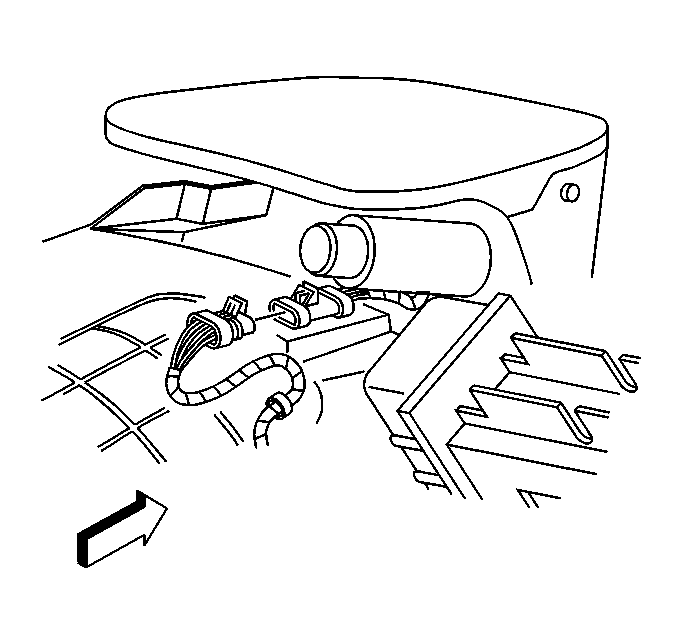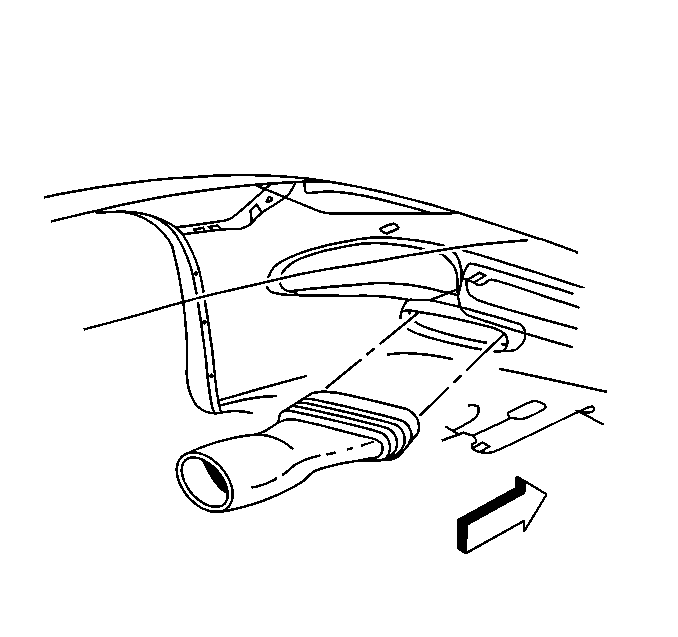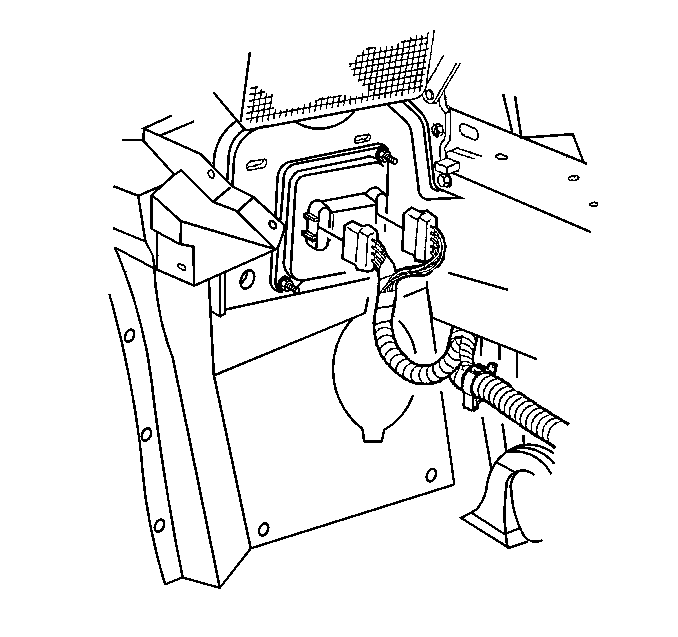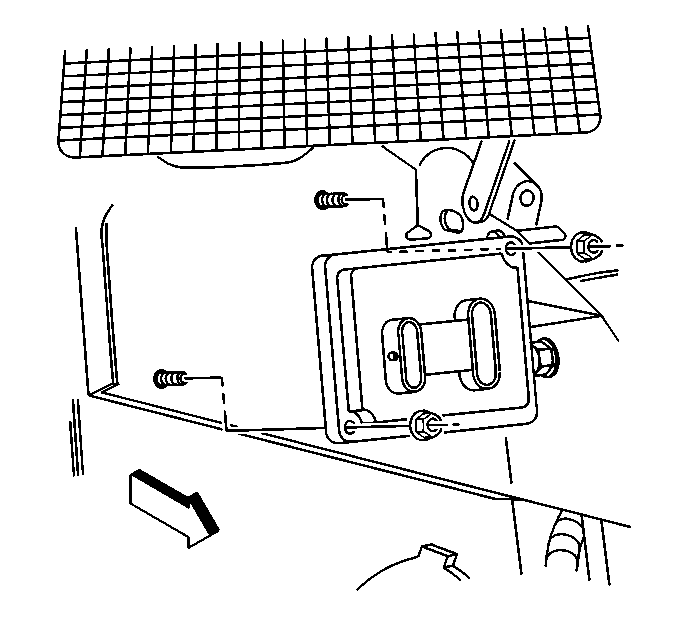Removal Procedure
- Open the hood.
- Disconnect the negative battery cable. Refer to
Caution: Unless directed otherwise, the ignition and start switch must be in the OFF or LOCK position, and all electrical loads must be OFF before servicing any electrical component. Disconnect the negative battery cable to prevent an electrical spark should a tool or equipment come in contact with an exposed electrical terminal. Failure to follow these precautions may result in personal injury and/or damage to the vehicle or its components.
in General Information. - Raise the RH headlamp manually.
- Disconnect the RH headlamp wiring harness electrical connector from the forward lamp wiring harness.
- Raise and suitably support the vehicle. Refer to Lifting and Jacking the Vehicle in General Information.
- Remove the front fascia lower closeout panel. Refer to Front Fascia Lower Close Out Panel in Bumpers and Fascias.
- Release the brake caliper cooling duct from the front fascia, then repositon the duct.
- Disconnect the electrical connectors from the headlamp control module.
- Remove the nuts mounting the module to the headlamp bracket.
- Remove the module from the vehicle.

Turn the manual headlamp control knob counterclockwise.



Installation Procedure
- Install the headlamp control module into position on the headlamp bracket.
- Install the nuts mounting the module to the headlamp bracket.
- Connect the electrical connectors to the module.
- Position the brake caliper cooling duct to the front fascia and push to secure.
- Install the front fascia lower closeout panel. Refer to Front Fascia Lower Close Out Panel in Bumpers and Fascias.
- Lower the vehicle.
- Connect the RH headlamp wiring harness electrical connector to the forward lamp wiring harness.
- Lower the RH headlamp manually.
- Connect the negative battery cable.
- Close the hood.




Turn the manual headlamp control knob clockwise.
Tighten
Tighten the negative battery cable bolt to 15 N·m (11 lb ft).
Notice: Use the correct fastener in the correct location. Replacement fasteners must be the correct part number for that application. Fasteners requiring replacement or fasteners requiring the use of thread locking compound or sealant are identified in the service procedure. Do not use paints, lubricants, or corrosion inhibitors on fasteners or fastener joint surfaces unless specified. These coatings affect fastener torque and joint clamping force and may damage the fastener. Use the correct tightening sequence and specifications when installing fasteners in order to avoid damage to parts and systems.
